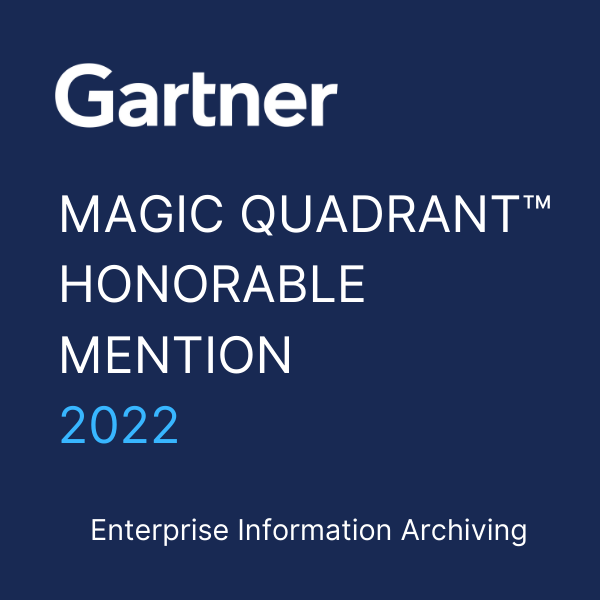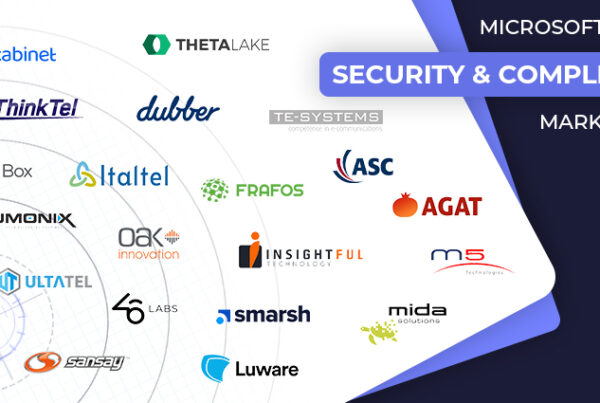
As we say goodbye to 2020, it is time to look ahead to what 2021 will bring for the world of compliance and RegTech.
The world is not going to forget 2020 anytime soon. It was a tough year for many people and companies around the world. Financial institutions had to dramatically change their services to ensure they could continue operations, turning their five year digitalisation strategies into five month strategies. With staff working remotely and consumers unable to go into branches, 2020 pushed more people to the online world and things are unlikely to go back to pre-Covid ways.
This posed a lot of challenges for compliance processes at financial institutions. With compliance teams working from home, banks needed to ensure employees had the right tools to continue doing their jobs efficiently. It also brought in new compliance challenges. With the rise in services like Zoom and Cisco Webex, firms needed to ensure the video meetings were compliant with various regulations, such as Dodd Frank that requires communications to be captured and monitored.
Despite the pandemic causing a lot of problems for many industries, RegTech was one of the few to excel. Investment into the sector has been steadily rising over the past four years and 2020 set a new record for the total amount of capital deployed to the sector. Global RegTech investment reached $8.3bn through 348 transactions, up from $7.2bn through 324 deals in 2019. Further testament to how appealing the RegTech sector is at the moment, total RegTech funding in 2016 was just $1bn through 148 deals.
While 2020 showed it is tough to predict the future, here are the trends to look out for in 2021.
Continued normalisation of remote working
While flexible working had been hailed as the future of work for many years, it was far from a normal sight before 2020, particularly in the financial services. However, lockdown around the world forced businesses to close their offices and have their staff work remotely. This led to a rapid effort to digitise and ensure their staff could continue to do their jobs from home. Online conference platforms like Zoom and Microsoft Teams saw accelerated adoption as companies used them to keep in contact with their team, as well as engage with clients.
While we have entered the new year, things do not look like they are changing any time soon. Countries around the world are beginning to go back into lockdown and unified collaboration platforms will still be crucial for operations.
“Firms will employ work from anywhere arrangements permanently, and rely on technology tools to secure collaboration platforms and ensure conversations on those applications align with compliance, privacy, and conduct obligations from GDPR and CCPA to Reg BI,” said Marc Gilman, general counsel and vice president of compliance at Theta Lake.
“Remote supervision and examinations will become well-established and ingrained practices for regulators who will use collaboration tools to communicate with member firms and leverage the more dynamic capabilities of those platforms to mirror an in-person experience.”
There are a lot of security issues when working from home. A report from Netwrix claimed that 85% of CISOs sacrificed cybersecurity to implement remote working. There are also a lot of potential issues with using third-party solutions. The platform came under fire last year for a number of issues. One of the security issues is known as Zoom-bombing, in which an uninvited guest joins a call and is able to harass or disrupt business meetings.
Another vulnerability even made it possible for a hacker to take control of devices, a report from Forbes claimed. The article also explained that the data privacy terms and conditions of the video conferencing app are a little worrying, which stated the application reserves the right to collect all of the information supplied through the app, including audio, instant messages and documents, and it can use this content for targeted advertising or other means.
“Securing collaboration tools will be critical–regardless of the use case,” Gilman said. “RegTech solutions providing features to monitor and manage settings like encryption, meeting passwords, and waiting rooms to mitigate the risks of Zoom-bombing and unauthorised access will be essential components of any enterprise IT toolkit.”
More education around RegTech
Despite RegTech having been around for a number of years there is still a need to educate compliance teams about what it can do for them, according to Remonda Kirketerp-Møller, founder and CEO at Muinmos.
“The biggest challenge in compliance in 2021 as far as I am concerned is educating compliance teams (lawyers, compliance officers etc) that RegTech solutions can empower their organisations and assist them in securing that their financial institutions are in compliance with the prevailing laws and regulations,” said Kirketerp-Møller. “Thousands of analysts at financial institutions spend their time searching the internet for regulatory updates in a boring and repetitive way, these analysts should be analysts instead of data processors.
“Using RegTech technology involves a new way of working which they should embrace as these solutions have been designed specifically to enable them to analyse the data and make more informed, timely and accurate decisions and not, as some people may think, to take their jobs away.”
Financial institutions are still being hit by a lot of fines for failures in compliance. In 2020, global financial institution fines totalled $10.4bn for non-compliance with anti-money laundering, know your customer, data privacy and MiFID regulations, according to data from Fenergo. Maintaining compliance is still a major challenge for firms and leveraging technology is becoming crucial to keep up with the changes and risks.
“I think there also needs to be more clarity for compliance teams about the differences between FinTechs and RegTechs,” said Kirketerp-Møller. “FinTechs are often required to be regulated as they compete with traditional methods in the delivery of financial services, whereas RegTechs cannot be regulated as they are simply using technology to enhance the management of regulatory processes such as compliance, regulatory reporting and monitoring. However, some regulated FinTechs also happen to offer some form of RegTech product as part of their core product suite. Why is this an issue?”
The problem Kirketerp-Møller has noticed is that financial institutions increasingly asking RegTech companies if they are regulated. “The answer to this, as they are RegTechs, is always ‘no’,” she said. The problem is, if that institution is in discussions with a regulated FinTech that has a RegTech product, the firm is likely to favour it just because it is regulated.
“This is detrimental to pure RegTech businesses and isn’t creating a level playing field. In my view, 2021 could be the year for regulators to consider introducing a regulatory framework for RegTechs or make the distinction between the two offerings clearer. This would be of benefit to all parties: the RegTechs, the financial institutions and the regulators.”
Growing complexity
Regulators around the world continue to release new regulations to safeguard consumers, however, this is leaving a lot of pressure on financial institutions to keep up. Constant updates on existing regulations also plague firms, taking up a lot of time and resources to monitor for any change.
“At a financial product level, both UCITS and AIF managers will have to account for sustainability risks and the impact of these risks within their disclosure documents,” said John Lee, president of Compliance Solutions Strategies. “The additional layer of complexity that this will introduce over the course of the year to the KID documents will be amplified by the transition from UCITS KIID to PRIIPs KID, slated for 31 December 2021, as well as divergence in key elements of these reporting standards arising as a consequence of Brexit.
“The growing complexity around the marketing and reporting of these financial products will draw asset managers closer to specialist data and document production vendors, as they seek the bandwidth to deal with these compliance requirements. The highest demand is likely to be seen for those solutions vendors who have the depth and breadth of product to offer both modular and end-to-end fund reporting solutions.
Another trend Lee believes will continue during 2021 will be consolidation in the fund reporting space both at a client level and amongst compliance vendors. This will be driven by financial firms looking toward vendors with holistic and multi-jurisdictional SaaS-based solutions, that are backed by a full managed service capable of in-house compliance at the point of data ingestion or at the front-end of document production.
“In some cases, support for the entire fund reporting lifecycle will be sought,” Lee said. “This in turn calls upon vendors of size and focus who have solutions targeted at the entire fund reporting value chain, backed by enhanced services capabilities, this will inevitably see larger RegTechs acquiring smaller firms or putting them out of business through aggressive pricing.”
This article first appeared on FinTech Global on January 20th, 2021. Access the original article here.











